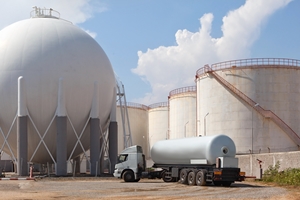A focus will need to be made on training and apprenticeships in Queensland to cover an impending skills gap in the mining and resources industry, according to the Australian Workforce and Productivity Agency (AWPA).
Australia’s resources sector is expected to shift from a construction phase into operations by 2018 and employment is forecast to increase by 57 per cent in oil and gas companies and 7.4 per cent in mining.
Resources project construction is expected to peak at 83,324 workers in 2014 before falling by almost 90 per cent to 7,708 in 2018.
“As our Resources Sector transitions to an operations phase and we embark on major liquefied natural gas and coal seam gas projects, resources companies will face challenges in recruiting and retaining workers with the required specialist operational skills and experience,” AWPA Chair Philip Bullock said in a December 16 media release.
The transition into operations is set to slowly set in over the coming years, which means construction workers have the opportunity to ‘retrain to retain’ their position in the mining and resources sector.
“Global competition for skilled workers is increasing and with a long lead time required to develop critical skills, industry, government and education and training providers have an opportunity now to work together to develop responses to meet these skills challenges. Workforce planning needs to proceed quickly to ensure domestic workers are available to fill time-critical shortages in the second half of this decade,” Mr Bullock said.
The AWPA ‘Resources sector skills needs 2013’ report was compiled by representatives from many leading industry organisations, such as the Minerals Council of Australia, Australian Constructors Association and the Construction, Forestry, Mining and Energy Union.
AWPA Board member Keith Spence said the resources sector needs to look at maximising the employment and training opportunities for skilled Australians to participate in the mining and resources boom.
“Having people who are multi-skilled is highly valuable, so those trade workers that are transitioning out of construction into operations that can have supplementary skills can become extremely valuable and attractive employees in the future,” Mr Spence said.
The ‘Resources sector skills needs 2013’ report identifies the need to introduce transitional training and apprenticeship programs to develop operational skills for the oil and gas sector.
This is encouraging news for those seeking apprenticeships or traineeships in Queensland as a focus on education for long-term employment goals supports a sustainable future in the resources workforce.
